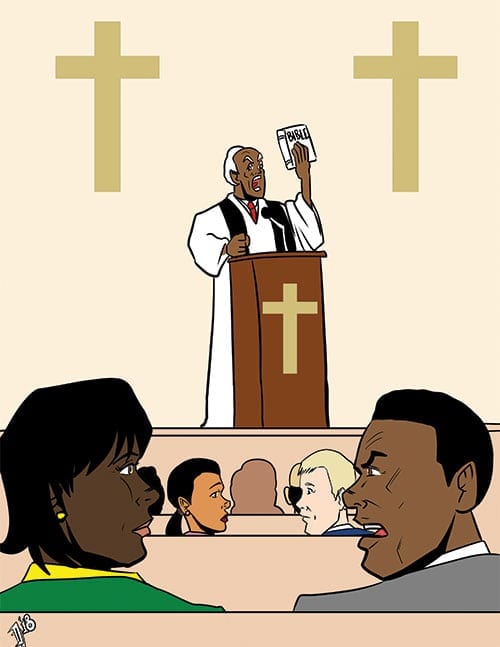
Holy Week has slipped by this year with little public notice or celebration. The days following Palm Sunday usually generate great solemnity among Christians as they prepare for Easter. The evangelicals are usually among the most ardent Christians, but publicity about the sexual rampages of Donald Trump seems to have stifled their open Christian ardor.
Since the evangelicals allegedly support family values, it appears to be inconsistent for them to embrace a president with an apparent active extramarital sex life. However, some historians assert that the evangelicals are willing to overlook those grievances to support a leader who is attuned to the values that prevailed in the South at the time of the Confederacy. They seem to believe that Trump will “Make America Great Again,” at least for the plantation owners.
This philosophical deviancy should come as no surprise. In the days when slavery was legal, southern Christians believed that by not being abusive to their slaves they were complying with the humanistic values of Christianity. There is a cultural delusion that enables evangelicals to perceive Trump as a divine messenger, who is nonetheless somewhat imperfect.
Understandably, efforts to unite the black church with white evangelicals in the South have frayed. Black congregants are angry that the white clergy have not opposed Trump’s racism, but why should they? That is the very reason they support Trump.
In the days after Easter, several events around the country have been planned to reflect on the 50th anniversary of Martin Luther King Jr.’s assassination. That heinous murder is still not satisfactorily solved.
Scholars still question whether King was killed as an act of vengeance for his role in the Civil Rights Act of 1964 and the Voting Rights Act of 1965, or whether his emerging leadership of the Poor People’s March created a real threat to the nation’s economic system.
At any rate, the convergence of Easter and the 50th anniversary of King’s death created an especially solemn occasion for black Christians.






